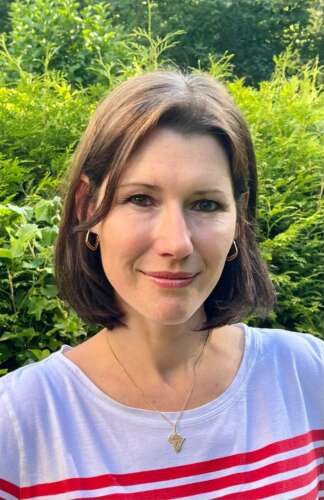How Germany’s Wealthy Contribute to a Better World
In times of multiple crises, the philanthropic efforts of Germany’s wealthy individuals are increasingly significant. Foundations like Crespo, Körber, Fritz Thyssen, Siemens, and Bertelsmann represent a long tradition of giving in Germany. The ultra-high-net-worth individuals (UHNWIs) behind these foundations often support social, cultural, and environmental projects through foundations, corporate engagement, or private donations.
However, there is little data on their motivations and the actual scope of their philanthropic engagement. Which thematic areas do they support? How do they organize their efforts? And what do they need to be strategic and effective? PHINEO sheds light on current trends and developments in how the wealthy make an impact.

In Germany, there are nearly 20,000 UHNWIs, individuals with a net worth of at least 30 million USD. This makes Germany rank third in global comparison.
Discreet Benefactors: Germany’s Hidden Philanthropy on the Rise
Philanthropic capital in Germany complements the functions of the strong welfare state and extends beyond. Most German UHNWIs contribute their time, networks, capital and assets to charitable causes, feeling responsible for using their wealth to address societal issues. Unlike the public “culture of philanthropy” in the US or UK, German philanthropists prefer to keep their contributions out of the spotlight.
Signs indicate that philanthropic efforts by German UHNWIs will increase due to a growing number of wealthy individuals and a rising willingness to support charitable causes. Reflecting on diverse and pervasive crises, they increasingly see their role alongside the state in addressing societal challenges. Role models in philanthropy are becoming more visible, and particularly the NextGens is bringing new impulses.
Sonja Schäffler, Major Donor Consulting & Impact Analysis PHINEO
“I am encouraged that people engage regardless of socioeconomic conditions, placing particular value on the content of their engagement and systemic impact.”
Experts estimate that German UHNWIs provided a mid-single-digit billion amount in philanthropic capital through donations and foundations in 2022. This figure varies as not all giving vehicles, such as e.g., impact investing, were considered. Experts believe that even more philanthropic capital could be mobilized for charitable purposes.
Looking to the Future: Where the Wealthy Engage
Traditionally, German UHNWIs support education, child and youth services, arts and culture, environmental protection, health, and science. These areas often focus on national projects, though over half of UHNWIs also support international initiatives linked to their business activities abroad.
However, the funding landscape is changing. Wealthy individuals increasingly support projects aimed at making Germany “future-proof.” The climate and biodiversity crises lead to more support for environmental protection, while demographic changes result in new health care concepts. The sustainable transformation of the German economy and its competitiveness is also becoming a focus. Support for entrepreneurial skills, innovation, STEM education, and “future skills” like resilience, empathy, digital, intercultural, and communication competencies is gaining momentum.
In light of the challenges we face, these are positive developments: Broad societal debates and philanthropic engagement are mutually reinforcing, and UHNWIs and their foundations respond to societal needs. Family entrepreneurship and sustainability are increasingly considered together, making engagement and philanthropy more than just an “add-on.”
Sonja Schäffler, Major Donor Consulting & Impact Analysis PHINEO
“Philanthropic capital offers great flexibility – it’s inspiring to see it increasingly used as ‘risk capital’ to advance future issues. Where the strengths of family businesses, civil society, social enterprises, and public institutions are wisely combined, sustainable change can succeed.”
From Tradition to Innovation: How the Wealthy Support Today
Classical foundations and traditional donations still dominate philanthropic engagement in Germany. The prevalence of charitable foundations increases with family wealth. Additionally, UHNWIs use their (family) businesses as vehicles for diverse engagement, providing personnel, financial, and other resources for acute and disaster relief.
Despite a long tradition of giving, few UHNWIs engage strategically, with impact-oriented logic, clear strategic measures and goals, and monitoring and evaluation. However, more are asking, “How can I support effectively and smartly?” This reflects the realization that money alone is not the answer to all challenges.
There is a growing consensus that traditional approaches, like perpetually endowed foundations, do not fully realize their potential. New, flexible giving methods are being explored, driven by established philanthropists and NextGens. New models include legal forms like gGmbH or spend-down foundations. (Multi-)Family offices are also becoming important philanthropy partners for UHNWIs.
Rupert Graf Strachwitz, Founder and Senior Strategic Advisor, Maecenata Foundation
“More and more ultra-high-net-worth individuals are approaching philanthropy with a certain level of professionalism. Or, if they prefer not to do it themselves, they hire someone to support them professionally. Many want to fully understand their engagement and make a difference.”
What’s Needed Now: Building Bridges
There is still room for growth: The potential to support UHNWIs in their impact-oriented engagement, address challenges together, and create an “ecosystem for philanthropy” in Germany is significant. Experts agree that more philanthropic activities are possible, from wealthy individuals to billionaires. To achieve this, various measures could be helpful:
- Educational and experiential offers on the basics of philanthropic engagement for UHNWIs
- Strengthening philanthropy advisory skills in the advisors’ environment of UHNWIs
- Creating exchange opportunities with other UHNWIs and the nonprofit sector
Falko Paetzold, Initiator & Board, Center for Sustainable Finance and Private Wealth (CSP) Zurich, Singapore and North America
“The name and position of high-net-worth individuals are extremely valuable. They need strategic awareness on how to use their role to increase visibility for philanthropic causes.”
Background:
Through various consulting projects, PHINEO regularly analyzes specific questions about the work, impact, and funding of nonprofit organizations. The insights mentioned above come from consolidating various sources, internal PHINEO expertise, analyses of wealthy families and their engagement, and 15 interviews with external Philanthropy experts.
As an impact partner, PHINEO has been supporting philanthropists for almost 15 years. We know that many face challenges in planning, structuring, and implementing their efforts to “do good” and make a difference. We offer trusted and active support by bringing our expertise from the nonprofit sector.
Impact Case Studies of Major Philanthropists and Foundations:
PHINEO has been an impact pioneer for 15 years, actively sharing its expertise:
- For major donors and philanthropists
- For foundations
- As a think tank – e.g. in the NextGen Report
Get more information:
Sonja Schäffler



